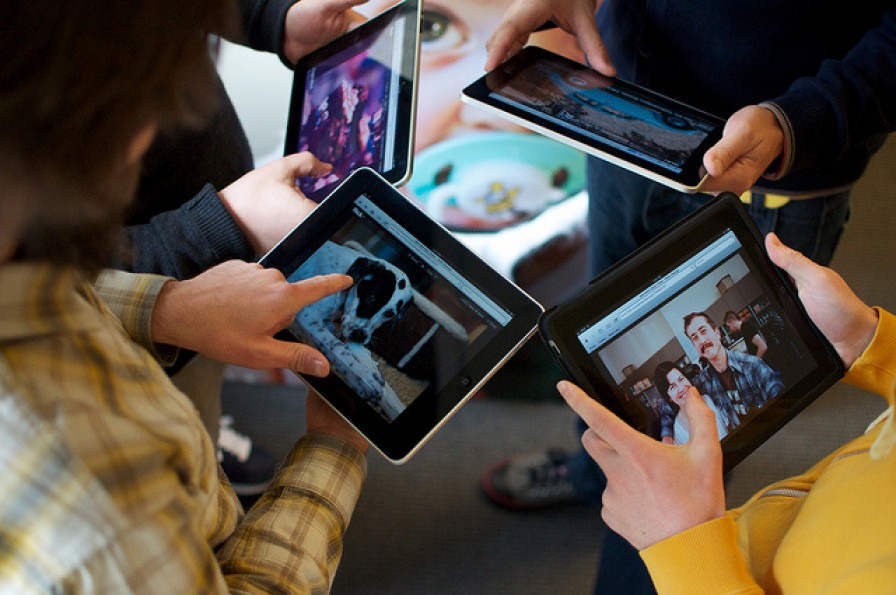Shiny, APPy people holding hands: digital instruments should be a social musical tool

At the Youth Music funded Musical Progressions roundtable in March I watched a presentation by Paul Weston from The Garage in Norwich which made me re-evaluate my arguably Luddite position on music technology and digital instruments.
Call me old fashioned, but I've never been that taken with music technology or digital instruments.
Rationally, I know they can be good: I'm a colleague and friend of many adult musicians, music leaders and young people who are really passionate about them (my fellow Grants and Learning Officer Nick Wilsdon makes for an excellent example).
But mine was a traditional, English folk upbringing and my main musical passion is group singing. Personally, music technology has never grabbed hold of me, drawn me in or attracted me to know more.
At the Musical Progressions roundtable, Paul demonstrated a couple of apps and showed a video of an iPad Orchestra. One sentence of his presentation stuck with me:
"With digital instruments you can achieve phrasing and solos before technique"...
If there's one thing I'm passionate about (alongside group singing!) it's equality. I believe, as humans, we owe it to each other to strive for equality of opportunity, equality of experience and for us all to be equally listened to and heard. Perhaps that's why I am passionate about the popular democracy of oral tradition folk music (if 'the people' didn't like the songs, they won't have been sung enough for us to remember them). And maybe that's what also draws me in to the team work and awareness-of-others that is required by group singing.
That one sentence from Paul made me re-examine the part that digital instruments might play in democratising the music learning landscape. If before we relied on 'the few' to impart their musical knowledge to 'the many', perhaps we can now get excited that 'the many' can download the app and learn for themselves.
In 2013 I led on the development of Youth Music's Quality Framework for Music Education (Do, Review, Improve). While I know that you can fully meet all of the criteria in one of my 'old fashioned' singing projects, I believe this idea of using digital instruments to flip musical learning on its head fits neatly with two of the criteria in particular:
-The musical process is... demystified (criterion 8)
-There is recognition of the young musician’s existing musical identity (criterion 1)
I appreciate that with this argument I risk sounding like the most fervent of solo digital instrument converts, who is downplaying the role of expert and professional musicians/music educators. It is true that I find myself with a new keenness to download an app or two and have a play around.
That said, I firmly believe we underestimate the benefits of the face-to-face, interpersonal aspects of our music education work at our peril. Indeed, many of the organisations Youth Music supports would describe themselves as 'community music' which in practice and in name is about human interactions.
So, with that in mind, I think I'll ask Nick - a music technology expert, musician and team-mate - if he wants to have a play around on the new apps with me...
(Image from http://www.flickr.com/photos/wafer/)
